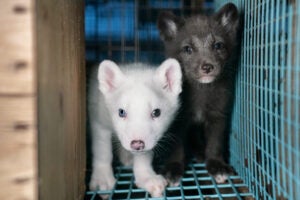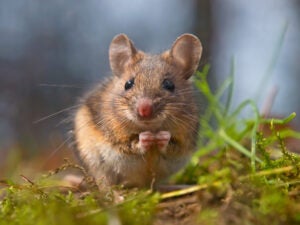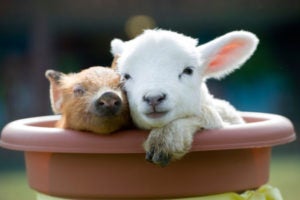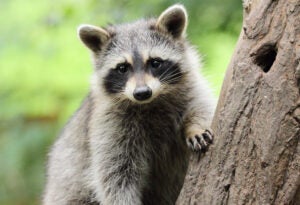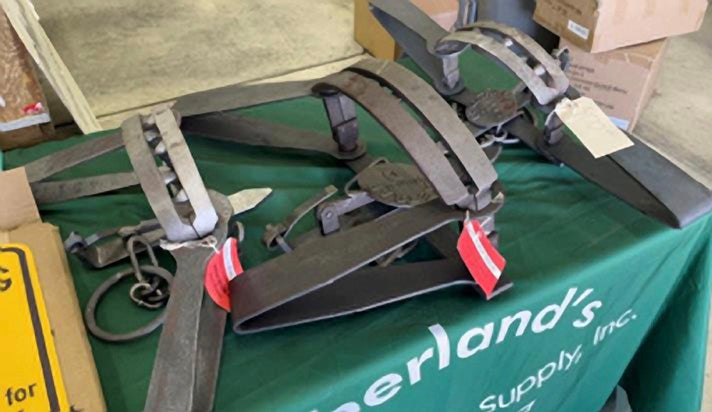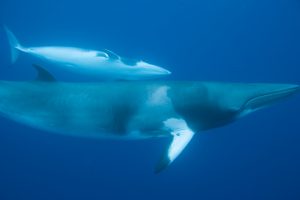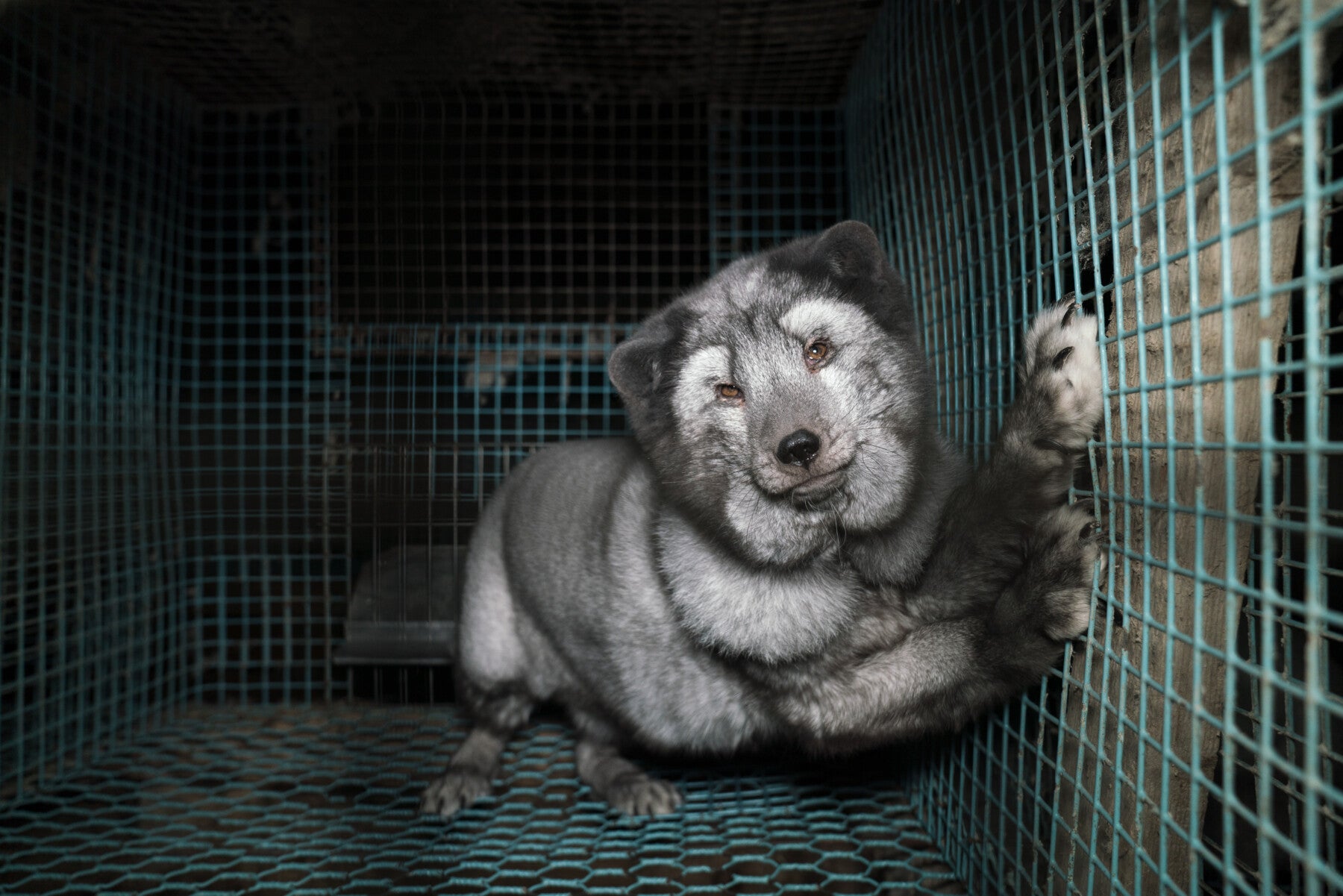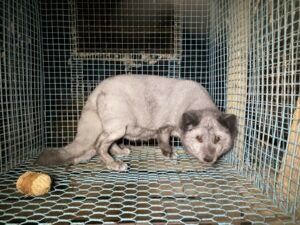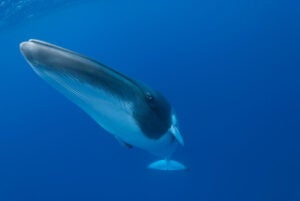
United Kingdom—The 40th anniversary of the global ban on commercial whaling has been marked today, with a plaque unveiled to hail one of the most significant conservation victories of all time.
Almost three million whales were killed for their oil and meat in the 20th century, bringing many species and populations to the brink of extinction. In July 1982, member countries of the IWC held an historic meeting at the Metropole Hotel in Brighton and agreed a global ban on commercial whaling, which remains in place today.
A recent £300,000 funding award to the International Whaling Commission (IWC) from the UK Government is supporting its vital whale conservation and welfare work around the world, addressing significant threats such as bycatch and climate change. This funding is also supporting the participation of developing countries in IWC meetings, ensuring that decisions are representative of all members. This financial support will help to enable the IWC to continue with its excellent work providing an international framework for the conservation and management of cetaceans.
To commemorate the anniversary a permanent memorial plaque was unveiled at the Hilton Metropole Hotel, at a reception attended by past and present members of the IWC, dignitaries and local Members of Parliament. Caroline Lucas MP opened speeches, pledging her ongoing commitment to vital conservation efforts. The event was co-hosted by leading animal protection charities working on the IWC, including the UK representatives of the Animal Welfare Institute, Born Free Foundation, Environmental Investigation Agency, Greenpeace, Humane Society International/UK, IFAW, OceanCare, ORCA, and Whale and Dolphin Conservation.
International Environment Minister Zac Goldsmith said: “The moratorium on commercial whaling led the way four decades ago and remains one of the clearest demonstrations that conservation action works, moving from a bleak outlook where nearly 3 million whales were killed in the 20th century, to one where whale populations are coming back from the brink of extinction. The work of the IWC has been instrumental, bringing together global partners to deliver the science, conservation and management to support these majestic marine mammals, and the UK is proud to lend our full support to this work, including to uphold this vital moratorium.”
Without doubt the ban on commercial whaling has spared the lives of hundreds of thousands of whales and been instrumental in pulling many species and populations back from the brink of extinction — although some have never recovered.
Beyond whaling, whales still face many threats caused by human activities including fisheries bycatch; chemical, plastic and noise pollution; ship strikes; habitat loss and the urgent climate crisis. Of the 90 species, 12 subspecies and 28 subpopulations of cetaceans that have been identified and assessed to date, 22 are listed as ‘Critically Endangered’, 22 as ‘Endangered’ and 16 as ‘Vulnerable’.
Originally established in 1946 to conserve whales in order to manage whaling, the IWC has since evolved to address myriad anthropogenic threats, such as fisheries bycatch, that are estimated to kill hundreds of thousands of cetaceans a year. The IWC is now central to global cetacean conservation and welfare efforts, including overseeing regional efforts to prevent entanglement and vessel strikes, and advancing the scientific understanding of cetacean sentience and suffering. The UK’s funding therefore comes as a huge boost to global efforts to protect these ocean giants for generations to come.
Sue Fisher, acting marine policy director for the Animal Welfare Institute, observed: “Forty years ago, members of the public protesting outside this hotel and around the world convinced their governments to ‘save the whales’. Today they face new perils from our degraded oceans. We commend the United Kingdom for its commitment to ensuring that the IWC can do its vital work to save the whales again.”
Claire Bass, executive director of Humane Society International/UK, said: “Whales face an uncertain future in our degraded oceans, but there can be no doubt that the global ban on commercial whaling has saved many species from the brink of extinction. The ban’s 40-year anniversary is therefore a timely reminder of what can be achieved and should serve to strengthen our resolve to strive for even greater action against threats such as entanglements and pollution. The UK government’s funding for and renewed commitment to the vital work of the International Whaling Commission is a very welcome boost that will support international efforts for years to come to ensure the recovery of cetacean populations and the welfare of these astonishing ocean giants.”
Lucy Babey, ORCA’s head of science & conservation, and marine mammal chair at Wildlife and Countryside Link, said: “The IWC moratorium on commercial whaling was one of the biggest single conservation measures ever introduced, and its legacy resonates even today. To celebrate this milestone is a privilege that I know everyone involved feels lucky to be a part of, and we are delighted that the UK Government has decided to reaffirm its commitment to the IWC to ensure the legacy of this momentous decision is safeguarded for years to come. Future generations can look back on this watershed moment and see a time when people who cared about the ocean came together and did something special, and in that spirit we are proud to have been a part of marking this occasion.”
Sharon Livermore, IFAW marine conservation director, commented: “To this day, the global commercial whaling ban remains one of the most iconic and important conservation achievements of all time. But there is still much work to do to protect whales and dolphins from the many other threats they face; the International Whaling Commission is central to that work, so this new UK government funding is very timely.”
Mark Simmonds OBE, director of science for OceanCare, said: “Historically, the whales had been viewed as huge swimming barrels of oil, blubber and meat, ripe for the plundering. By 1982, when the moratorium was agreed, they were much better known, the grace and grandeur of these social mammals had been revealed by ground-breaking underwater cinematography, and we were increasingly concerned about the cruelty of whaling. And now, forty years on, we know so much more! New species and populations have been discovered and we also recognize cultural units with unique behaviours, and we are also busy exploring the contributions that the whales make to keeping our essential marine ecosystems healthy. Now is the time to make the moratorium complete and for all commercial whaling to end.”
Vanessa Tossenberger, Whale and Dolphin Conservation policy director, commented: “Working towards the recovery of whale populations is part of a nature-based solution to the climate and biodiversity crises. We appreciate that the IWC is leading efforts to better understand whales and their impact on ecosystem functioning. For this work to be successful, the IWC must urgently strengthen protections for cetaceans from the many risks they are facing and ensure the moratorium on commercial whaling stays firmly in place and is fully adhered to by all IWC members.”
Clare Perry, Environmental Investigation Agency UK senior advisor on ocean campaign said: “The ban on whaling has already saved the great whales from certain extinction and today it has an even more important role to play in securing the future of all whales, dolphins and porpoises from mounting threats including hunting, pollution, climate change and bycatch.”
Fast facts:
- In the 20th century, commercial whalers killed 2,894,094 whales, including 874,068 fin whales and 761,523 sperm whales. At the peak of their operations, commercial whalers were killing an average of 70,000 whales a year.
- The IWC’s commercial whaling ban was agreed in 1982 in a 25:7 vote, and came into effect worldwide in 1986. Catches fell to 6,361 that year. There are three countries that currently conduct commercial whaling: Norway, Iceland and Japan.
- The degradation of the ocean has accelerated rapidly in recent years, with ocean temperatures warming up to 40% faster on average than the Intergovernmental Panel on Climate Change previously estimated.
- Science estimates that the amount of plastic entering the ocean will increase three-fold between 2016—2040 if urgent action isn’t taken.
- Ocean acidification has increased by 26% since pre-industrial times, and global maritime traffic as well as underwater noise levels from shipping, seismic surveys, exploration and military activities, have also significantly intensified.
- An estimated 300,000 cetaceans are killed annually as bycatch in fisheries.
ENDS
Media contact: Sally Ivens, Humane Society International/UK: sivens@hsi.org

